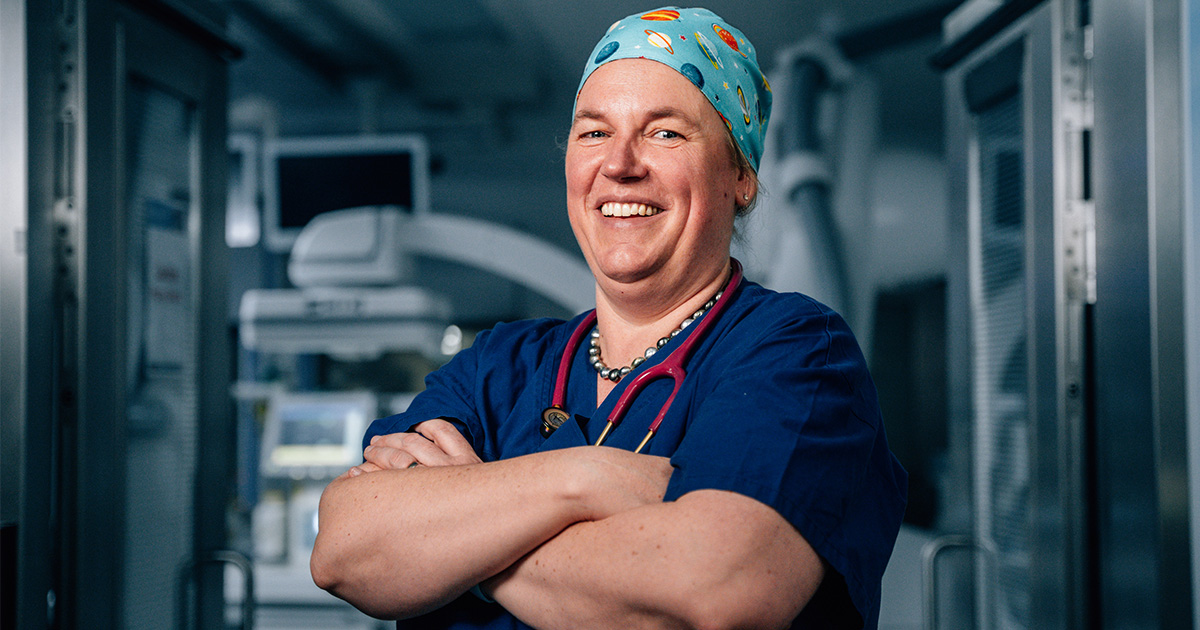Search
Research
Without training, they lacked knowledge. Without knowledge, they lacked confidence. Without confidence, they lacked victory (Julius Caesar)Britta Regli-von Ungern-Sternberg AM FAHMS MD, PhD, DEAA, FANZA Chair of Paediatric anaesthesia, University of Western Australia; Consultant
Research
Propofol, Anesthesia, and Neurocognitive Outcomes in Patients with Pediatric Leukemia: Are We Missing the Forest for the Trees?Britta Regli-von Ungern-Sternberg AM FAHMS MD, PhD, DEAA, FANZA Chair of Paediatric anaesthesia, University of Western Australia; Consultant
Research
Penicillin allergy SHACK: Survey of hospital and community knowledgePenicillin allergy accounts for the majority of all reported adverse drug reactions in adults and children. Foregoing first-line antibiotic therapy due to penicillin allergy label is associated with an increased prevalence of infections by resistant organisms and longer hospitalisation.
Research
Current post-tonsillectomy analgesia practices among Australian and New Zealand anesthetists, and opinions on non-opioid alternativesChildren experience significant pain following extracapsular tonsillectomy surgery, and while opioids are often prescribed to treat this, clinicians may be wary of their adverse side effects, leading to variation in practice. There is a need for improved post-tonsillectomy pain management in children.
Research
Association of preoperative nocturnal hypoxaemia nadir and fentanyl ventilatory sensitivity in children with obstructive sleep apnoea undergoing general anaesthesiaObstructive sleep apnoea (OSA) has been thought to increase the risk of respiratory depression from opioids. The primary aim of this study was to assess whether preoperative hypoxaemia by sleep study pulse oximetry imparts greater opioid sensitivity.
Research
Difficult or impossible facemask ventilation in children with difficult tracheal intubation: a retrospective analysis of the PeDI registryDifficult facemask ventilation is perilous in children whose tracheas are difficult to intubate. We hypothesised that certain physical characteristics and anaesthetic factors are associated with difficult mask ventilation in paediatric patients who also had difficult tracheal intubation.
Research
Airway management in neonates and infants: European Society of Anaesthesiology and Intensive Care and British Journal of Anaesthesia joint guidelinesAirway management is required during general anaesthesia and is essential for life-threatening conditions such as cardiopulmonary resuscitation. Evidence from recent trials indicates a high incidence of critical events during airway management, especially in neonates or infants. It is important to define the optimal techniques and strategies for airway management in these groups.

News & Events
Prime Minister’s Prize for pioneering WA anaesthetistCongratulations to trailblazing Western Australian paediatric anaesthetist and researcher Professor Britta Regli-von Ungern-Sternberg, who has been awarded a prestigious Prime Minister’s Prize for Science for globally influential research that has made surgery and recovery safer for babies and children.
Research
Trends in paediatric anaesthesia research publications and the impact of author sex, country of origin, topic, and external fundingThe current research landscape has become increasingly competitive with approximately 35% of submitted manuscripts accepted for publication by peer-review journals. It is known that studies with certain 'favourable characteristics' have an increased likelihood of acceptance for publication, such as prospective study design, multiple sites, and notable authors.
Research
3-Dimensional Virtual Reality Versus 2-Dimensional Video for Distraction during the Induction of Anesthesia in Children to Reduce Anxiety: A Randomized Controlled TrialPreoperative anxiety is common in children. It can contribute to negative experiences with anesthetic induction and may cause adverse physiological and psychological effects. Virtual reality (VR) and electronic tablet devices are 2 audiovisual distraction tools that may help to reduce anxiety and enhance the preoperative experience. This study aimed to compare the use of an immersive 3-dimensional (3D) VR to 2-dimensional (2D) video on anxiety in children during induction of general anesthesia.
